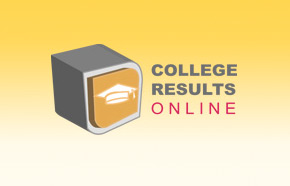College offers more aid second time around
When Sean Galligan, a senior at Weymouth High School, received his financial aid package from Worcester Polytechnic Institute this spring, he knew right away that he had to apply for more money.
Galligan's college savings took a hit when the stock market plunged, and so instead of having a good portion of tuition costs set aside, Galligan needed extra financial aid.
"Money has been hard to come by and I felt I wanted a little more help going into my freshman year," Galligan said.
After re-evaluating his situation, WPI added a $3,700 scholarship to Galligan's package.
The number of college students seeking additional aid at both private and public institutions is growing rapidly in the face of family layoffs, battered savings accounts and bankruptcies brought on by the deep recession.
"This is going to be a year like none other that we've ever seen," said Clantha McCurdy, vice chancellor at the Massachusetts Office of Student Financial Assistance.
"That's what you get when there's challenging financial times," McCurdy said. "A lot of parents have lost their jobs."
McCurdy said there is no statewide count on re-evaluation applications - requests by students seeking another run at financial aid. But she said she has no doubt financial aid offices are seeing "huge increases" in requests. Financial counselors at the University of Massachusetts-Boston are encountering two petitions per day, up from two per month last year.
Judy Keyes, director of financial aid at UMass-Boston, sent an e-mail this spring telling students there is additional aid available. The e-mail encouraged students facing financial hardship to send the school a letter describing the circumstances, such as unemployment, reduced work hours and or a decreased credit rating.
"We're always concerned about those that might leave without pursuing other options," Keyes said.
Bridgewater State College saw its requests climb to 86 compared to 56 at this point last year, a 65 percent increase. Though re-evaluations involve only a small portion of the 6,000 Bridgewater students receiving help this year, financial aid director Janet Gumbris said the increase is atypical.
One reason for the spike in financial aid re-evaluations may be unemployment. Since September, more than 75,000 Massachusetts workers have lost their jobs, according to the Executive Office of Labor and Workforce Development. The state's 7.8 percent unemployment rate - representing 265,900 people -- is at its highest level since 1993.
McCurdy said her financial aid office is receiving four times the number of calls than previous years. She encourages her staff to spend extra time with parents to explain their options, such as reapplying for more state grants.
Reggie Harge, a program manager at the TERI College Planning Center in Boston, said he's heard more questions about financial aid re-evaluations this year than any time in his 13 years at the Education Resources Institute, a national organization that serves 8,000 Massachusetts students annually at its offices in Boston and Brockton.
"The economy is doing us a favor in one sense, in that it's bringing more clients to us," Harge said. "But it's unfortunate the economy is having that kind of impact on students. It breaks our heart to hear these stories."
Those stories include an older student who came to the center for help after losing his $40,000-a-year job. The man's financial aid award letter included the previous year's income, but he could not afford classes with what the school was offering. Harge told him to call the college right away and explain what happened.
"It's up to the student to be proactive and tell the school 'Here's my situation,"' Harge said.
This year the federal financial aid form includes a question about displaced workers. The question has helped keep colleges informed about hardships, Harge said.
But if a student's financial situation changes after they submit the form, they need to send a letter or e-mail to the school. The school will then ask for more detailed information, such as unemployment checks or court bankruptcy papers.
Students will then be informed of the college's ability to provide more financial aid, usually during the summer, but possibly into the fall as money is freed up when other students who have received aid decide not to attend.
Private colleges have also experienced a spike in re-evaluation requests, though not as drastic as those at public schools. Western New England College spokesman David Stawasz said his institution has seen a big increase from incoming freshman, though the college has yet to compare this year to last because of its rolling admissions process.
"Financial aid forms rely on income for the past year," Stawasz said. "We have seen an increase in the number of people who have experienced a change in employment - losing a job, working fewer hours, etc. - from the previous year, sometimes even since the financial aid form was filed."
Stonehill College, which has experienced an overall 20 percent increase in financial aid requests from incoming freshmen, has also seen a 10 percent hike in the number of requests for re-evaluation compared to fall 2008.
"I believe that while the economy made people more cautious and (they) are therefore asking for additional funding, it was not because they had already lost their jobs," said Eileen O'Leary, Stonehill's director of financial aid.
Only 29 of 3,102 financial aid applicants at Stonehill cited job loss as a reason for seeking more money.
Private schools are seeing smaller percentage increases in such re-evaluation requests because overall they give more aid to students based on their higher tuition costs, said Richard Doherty, president of the Association of Independent Colleges and Universities in Massachusetts.
"Plus most of our schools are residential," Doherty said, "so the conversation between counselors and students is more straightforward, it's a more personal experience."
J.D. comments: Discovering the historical giving pattern (how much aid the school gives out on averge) of each college your child is applying to is critical in developing a financial plan so that you don't have to scramble at the last minute or take on excessive student loans. AND learn the 3 or 4 keys to position yourself to qualify for as much aid as you can.





